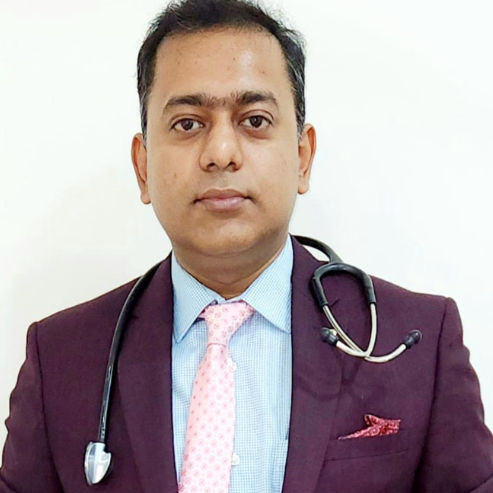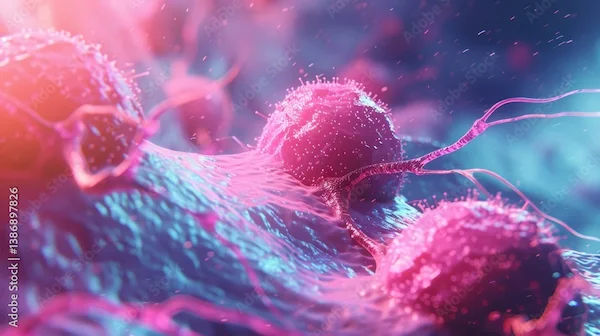Symptoms of Cancer in Women
Recognize the crucial early symptoms of cancer in women. Learn to identify subtle changes and key warning signs across various types of cancer, empowering you to seek timely medical attention and improve outcomes.

Written by Dr. J T Hema Pratima
Reviewed by Dr. Shaik Abdul Kalam MD (Physician)
Last updated on 7th Aug, 2025

Cancer is a serious health condition that affects millions of women worldwide. While early detection can significantly improve treatment outcomes, many women ignore or overlook early warning signs. Knowing the common symptoms of cancer can help you seek medical attention promptly, increasing the chances of successful treatment.
This article will guide you through the key symptoms of cancer in women, possible causes, and when to consult a doctor.
Common Symptoms of Cancer in Women
Cancer symptoms can vary depending on the type and stage of the disease. However, some general signs may indicate the presence of cancer in women.
1. Unexplained Weight Loss
Losing weight without trying (especially more than 10 pounds in a short time) can be a sign of cancers like ovarian, stomach, or pancreatic cancer.
2. Persistent Fatigue
Feeling extremely tired even after rest could indicate leukemia, colon cancer, or other cancers affecting blood cells.
3. Changes in Breast Appearance
Look out for:
A new lump or thickening in the breast or underarm
Changes in breast size, shape, or skin texture
Nipple discharge (other than breast milk) or inversion
Redness or dimpling of breast skin
4. Abnormal Vaginal Bleeding
Bleeding after menopause
Heavy or irregular periods
Bleeding after intercourse
Unusual vaginal discharge
These could be signs of cervical, uterine, or ovarian cancer.
5. Persistent Pain
Chronic pain that doesn’t go away, such as:
Pelvic pain (possible ovarian or uterine cancer)
Back pain (could indicate ovarian or colorectal cancer)
Headaches (rarely linked to brain tumors)
6. Changes in Skin Moles or Patches
A mole that changes in size, color, or shape
A sore that doesn’t heal
Darkening or yellowing of the skin
These may indicate skin cancer or liver cancer.
7. Digestive Issues
Persistent bloating
Difficulty swallowing
Indigestion or heartburn that doesn’t improve
Changes in bowel habits (constipation, diarrhea, or blood in stool)
These could signal stomach, ovarian, or colorectal cancer.
8. Persistent Cough or Hoarseness
A cough that doesn’t go away or coughing up blood may be a sign of lung or throat cancer.
9. Swelling or Lumps
Unusual lumps in the neck, underarms, groin, or elsewhere should be checked by a doctor.
Consult Top Oncologist For personalised Tips
When Should You See a Doctor?
Not all symptoms mean cancer, but if you notice any of these signs persisting for more than two weeks, it’s best to consult a doctor. Early detection can save lives.
Who Is at Higher Risk?
Family history of cancer
Smoking or excessive alcohol use
Obesity
Exposure to radiation or harmful chemicals
HPV infection (linked to cervical cancer)
How Can You Reduce Your Risk?
While not all cancers can be prevented, certain lifestyle changes can lower your risk:
1. Regular Screenings
Pap Smear & HPV Test (for cervical cancer)
Mammograms (for breast cancer)
Colonoscopy (for colorectal cancer)
2. Healthy Diet
Eat more fruits, vegetables, and whole grains
Limit processed meats and sugary foods
Stay hydrated
3. Exercise Regularly
Aim for at least 30 minutes of moderate exercise daily.
4. Avoid Smoking & Limit Alcohol
Smoking is linked to multiple cancers, and excessive alcohol increases breast cancer risk.
5. Protect Your Skin
Use sunscreen and avoid excessive sun exposure to prevent skin cancer.
Take Action Today
If you or a loved one are experiencing any of these symptoms, don’t ignore them. Early diagnosis is key to successful treatment.
Apollo 24|7 offers easy online consultations and cancer screening tests. You can book an appointment with a specialist from the comfort of your home.
Final Thoughts
Being aware of your body and recognizing unusual changes can make a big difference in detecting cancer early. If something feels off, trust your instincts and seek medical advice.
Remember, not all symptoms mean cancer, but it’s always better to be safe than sorry. Stay informed, stay healthy!
Consult Top Oncologist
Consult Top Oncologist For personalised Tips

Dr. Rupam Manna
Radiation Specialist Oncologist
4 Years • MBBS MD(RADIO THERAPY)
Barasat
Diab-Eat-Ease, Barasat

Dr. Gopal Kumar
Head, Neck and Thyroid Cancer Surgeon
15 Years • MBBS, MS , FARHNS ( Seoul, South Korea ), FGOLF ( MSKCC, New York )
Delhi
Apollo Hospitals Indraprastha, Delhi
(25+ Patients)

Dr Gowshikk Rajkumar
Oncologist
10 Years • MBBS, DMRT, DNB in Radiation oncology
Bengaluru
Apollo Clinic, JP nagar, Bengaluru

Dr.sanchayan Mandal
Oncologist
17 Years • MBBS, DrNB( MEDICAL ONCOLOGY), DNB (RADIOTHERAPY),ECMO. PDCR. ASCO
Kolkata
Dr. Sanchayan Mandal Oncology Clinic, Kolkata
Dr. B Shravanthi Reddy
Radiation Specialist Oncologist
8 Years • MBBS, DNB(Radiation Oncology)
Manikonda Jagir
Apollo Clinic, Manikonda, Manikonda Jagir
Consult Top Oncologist

Dr. Rupam Manna
Radiation Specialist Oncologist
4 Years • MBBS MD(RADIO THERAPY)
Barasat
Diab-Eat-Ease, Barasat

Dr. Gopal Kumar
Head, Neck and Thyroid Cancer Surgeon
15 Years • MBBS, MS , FARHNS ( Seoul, South Korea ), FGOLF ( MSKCC, New York )
Delhi
Apollo Hospitals Indraprastha, Delhi
(25+ Patients)

Dr Gowshikk Rajkumar
Oncologist
10 Years • MBBS, DMRT, DNB in Radiation oncology
Bengaluru
Apollo Clinic, JP nagar, Bengaluru

Dr.sanchayan Mandal
Oncologist
17 Years • MBBS, DrNB( MEDICAL ONCOLOGY), DNB (RADIOTHERAPY),ECMO. PDCR. ASCO
Kolkata
Dr. Sanchayan Mandal Oncology Clinic, Kolkata
Dr. B Shravanthi Reddy
Radiation Specialist Oncologist
8 Years • MBBS, DNB(Radiation Oncology)
Manikonda Jagir
Apollo Clinic, Manikonda, Manikonda Jagir

.webp)
